
20 Must-Read Books About Disease, Being Sick, and the History of Medicine
This content contains affiliate links. When you buy through these links, we may earn an affiliate commission.
I’ve always been fascinated by diseases and the history of medicine, maybe because I read a lot of classic children’s literature where characters were always catching scarlet fever (or worse). For whatever reason, this fascination has lasted well into adulthood. Any time a new cultural history of a particular disease comes out, or a book about pandemics, I am in. And there are tons of interesting nonfiction books about disease and being sick! Here are 20 of them to get you started learning more about the human body and the history of medicine.
Sontag writes about how cultural narratives and metaphors involving disease often cast blame on people who are sick. Think, for example, of how often we talk about people who die from cancer having lost a battle. Disease isn’t a punishment or a curse, either, or a sign of some inner purity, as you might think if you read only Victorian novels. As Sontag writes, “Everyone who is born holds dual citizenship, in the kingdom of the well and in the kingdom of the sick. Although we all prefer to use only the good passport, sooner or later each of us is obliged, at least for a spell, to identify ourselves as citizens of that other place.” Sontag writes about cancer and tuberculosis, and in a follow-up to the original book, takes on the topic of AIDS. The two volumes have since been published as one. I read this book in grad school and it changed the way I think about the language of illness. It’s a slim book and won’t take long to read, and I think it’s one of the essential books about disease to read.
Neurosurgeon Kalanithi was only 36 when he was diagnosed with Stage IV lung cancer. Facing a terminal diagnosis, he sets out to answer the question of what makes life worth living. In this profoundly moving memoir, he wrestles with questions about having children, how to plan for a future he won’t see, and how to go on after the worst.
Rabid
Rabies is probably my number one disease obsession (anyone who knows me is rolling their eyes right now) and this is one of my favorite books about disease ever. It’s just that fascinating. Did you know that rabid bats can bite humans without even leaving a mark? Or that one unusual symptom of rabies is, um, spontaneous ejaculation? You’ll learn those fun facts and more in this spirited, entertaining cultural history of one of the deadliest diseases known to humans. (The fatality rate of rabies is 100%! Except for a few medical miracles.)
Believe it or not, historians estimate that more people died in the 1918–1920 outbreak of the Spanish Flu than died in World War One. It’s one of the most deadly outbreaks in human history but is always overshadowed by the war that came before. Spinney investigates how this pandemic began and how it tested human and medical ingenuity. Was the Spanish Flu as significant in shaping the 20th century as two world wars? Spinney argues yes, and it’s a truly absorbing read.
The Emperor of All Maladies
You don’t need me to tell you that cancer is awful. In this sprawling, readable book, Mukherjee gives us a “biography” of this scourge with so many different deadly forms. Cancer has been around for thousands of years, as you’ll learn. Treatments have changed so much over time (and are, of course, still changing today) as we try to keep up with this deadly disease.
If you’re looking for a general book about several of the worst plagues in human history, this is the perfect read for you. With tons of humor and an evident fascination with her subject matter, Wright looks at a few of the most notorious plagues humans have suffered, from tuberculosis to AIDS. The book is a well-researched overview of these diseases rather than a deep dive, but it’s a good book to dip in and out of.
If you’re like me, you spend a lot of time wondering what new pandemics life has in store for us. (I’m very fun at parties.) Khan, a public health first responder, recounts disasters he’s witnessed, including outbreaks of anthrax and bird flu, and how the effectiveness of the human response is often what decides how deadly an outbreak will be.
If you’re looking for more books about disease, you may want to check out a couple of other Book Riot lists: 5 Fiction and Nonfiction Books About Medicine; 50 Books to Read if You Love Medicine; 100 Must-Read Books About the History of Medicine. Happy reading, and stay vaccinated!
Memoirs about Illness
 Illness as Metaphor by Susan Sontag
Illness as Metaphor by Susan Sontag
Sontag writes about how cultural narratives and metaphors involving disease often cast blame on people who are sick. Think, for example, of how often we talk about people who die from cancer having lost a battle. Disease isn’t a punishment or a curse, either, or a sign of some inner purity, as you might think if you read only Victorian novels. As Sontag writes, “Everyone who is born holds dual citizenship, in the kingdom of the well and in the kingdom of the sick. Although we all prefer to use only the good passport, sooner or later each of us is obliged, at least for a spell, to identify ourselves as citizens of that other place.” Sontag writes about cancer and tuberculosis, and in a follow-up to the original book, takes on the topic of AIDS. The two volumes have since been published as one. I read this book in grad school and it changed the way I think about the language of illness. It’s a slim book and won’t take long to read, and I think it’s one of the essential books about disease to read.
The Cancer Journals by Audre Lorde
Like Sontag, Lorde writes about cancer from her own personal experience. This collection of essays and diary entries investigates the intersection of feminism and breast cancer. Lorde writes about her mastectomy, the cultural pressure women face to look as “normal” as possible, and how her reaction to her diagnosis is shaped by her identity as a black lesbian feminist poet.Sick by Porochista Khakpour
In this memoir, Khakpour shares her experience of being diagnosed with late-stage Lyme, a diagnosis that finally explained many years of unexplained illness but upended her life. Traveling from New York to California to New Mexico and even further afield in search of the best doctors and treatments, Khakpour contends with hospitalizations, drug addiction, and mounting medical bills in this candid look at what it’s like to live with a chronic illness. Khakpour’s book is an essential look at a disease that’s been in the headlines. When Breath Becomes Air by Paul Kalanithi
When Breath Becomes Air by Paul Kalanithi
Neurosurgeon Kalanithi was only 36 when he was diagnosed with Stage IV lung cancer. Facing a terminal diagnosis, he sets out to answer the question of what makes life worth living. In this profoundly moving memoir, he wrestles with questions about having children, how to plan for a future he won’t see, and how to go on after the worst.
The Collected Schizophrenias by Esme Weijun Wang
In this essay collection, Wang combines personal experience and research to investigate mental illness. Schizophrenia is not a single diagnosis, and it’s also long been misunderstood by the public and even the medical community. Wang dispels misconceptions as she writes about how schizoaffective disorder has manifested in her own life.Tell Me Everything You Don’t Remember by Christine Hyung-Oak Lee
At the age of 33, Lee had a stroke that turned her world upside down. Struggling to hold memories in her mind, she began to write notes in her journal, later using those notes to create this memoir of the stroke and how it changed her life. What is the connection between memory and self, and how does the way we see ourselves change when our memories are altered?Books About Specific Diseases
Rabid by Bill Wasik and Monica Murphy
by Bill Wasik and Monica Murphy
Rabies is probably my number one disease obsession (anyone who knows me is rolling their eyes right now) and this is one of my favorite books about disease ever. It’s just that fascinating. Did you know that rabid bats can bite humans without even leaving a mark? Or that one unusual symptom of rabies is, um, spontaneous ejaculation? You’ll learn those fun facts and more in this spirited, entertaining cultural history of one of the deadliest diseases known to humans. (The fatality rate of rabies is 100%! Except for a few medical miracles.)
The Great Mortality by John Kelly
We all know that the Black Plague changed the world—it’s hard to argue otherwise when it killed 25 million people in the 14th century, devastating the population of Europe and Asia. This is a straightforward, compulsively readable account of how the plague spread. Kelly crafts a dramatic narrative about the prejudice, misery, sacrifice and more that changed the world forever.Black Death at the Golden Gate by David K. Randall
Most people think of the plague as something medieval, especially since the invention of penicillin. But Randall is here to let us know that the plague is closer than we think. In 1900, a Chinese immigrant named Wong Chut King died a quiet death in San Francisco. A city health officer noticed something unusual, though: a swollen black lymph node that indicated bubonic plague. What followed was a race against time to contain a deadly disease in a fast-growing city, even as officials refused to believe that the plague had returned. Pale Rider by Laura Spinney
Pale Rider by Laura Spinney
Believe it or not, historians estimate that more people died in the 1918–1920 outbreak of the Spanish Flu than died in World War One. It’s one of the most deadly outbreaks in human history but is always overshadowed by the war that came before. Spinney investigates how this pandemic began and how it tested human and medical ingenuity. Was the Spanish Flu as significant in shaping the 20th century as two world wars? Spinney argues yes, and it’s a truly absorbing read.
The Ghost Map by Steven Johnson
This is another one of my favorite books about disease. Looking for the story of a cholera outbreak in Victorian London told with the relentless investigative feel of a police procedural? This is it! In 1854, a cholera outbreak devastates London. Not only is there no cure, no one is totally sure how it spreads. Physicians and members of the medical establishment point to the miasma theory, the idea that diseases are spread by bad air from the stinking River Thames, but Dr. John Snow has another theory. He sets out to prove how cholera is spread by tracing the path of the outbreak through a London neighborhood.Catching Breath by Kathryn Lougheed
Tuberculosis has been immortalized in art, film and literature from La Boheme to Moulin Rouge. As a disease, it’s often been romanticized thanks to these portrayals—but as Lougheed points out, it still kills over a million people a year. And now particularly nasty strains of antibiotic-resistant tuberculosis are cropping up around the world. What is it about tuberculosis that so fascinates us? In this compelling history of the disease, we learn about tuberculosis’s beginnings 40,000 years ago and how it has cleverly adapted to continue infecting humans, as well as cutting-edge new treatments.The Emperor of All Maladies by Siddhartha Mukherjee
by Siddhartha Mukherjee
You don’t need me to tell you that cancer is awful. In this sprawling, readable book, Mukherjee gives us a “biography” of this scourge with so many different deadly forms. Cancer has been around for thousands of years, as you’ll learn. Treatments have changed so much over time (and are, of course, still changing today) as we try to keep up with this deadly disease.
Typhoid Mary: An Urban Historical by Anthony Bourdain
I, too, thought it was a little strange that Anthony Bourdain wrote a book about Mary Mallon, who was a cook known for unwittingly affecting the families she worked for with typhoid fever. But I guess it’s the cooking connection. Regardless, this is a slim, breezy read that tells Mary’s rather sad story with all of Bourdain’s trademark charm and verve.Polio: An American Story by David M. Oshinsky
I feel like polio could be a season of American Horror Story, to be honest. It’s hard to imagine now, but the idea of polio once terrorized the world. The disease often struck children and permanently damaged their nerve cells. Oshinsky describes the race to find a cure for polio, which was the source of an intense rivalry between Jonas Salk and Albert Sabin. And as Oshinsky reveals, polio may not have been the all-encompassing threat people imagined—but it nevertheless became a specter hanging over daily life in post-war North America.General Books about Disease and Medicine
 Get Well Soon by Jennifer Wright
Get Well Soon by Jennifer Wright
If you’re looking for a general book about several of the worst plagues in human history, this is the perfect read for you. With tons of humor and an evident fascination with her subject matter, Wright looks at a few of the most notorious plagues humans have suffered, from tuberculosis to AIDS. The book is a well-researched overview of these diseases rather than a deep dive, but it’s a good book to dip in and out of.
Being Mortal by Atul Gawande
This isn’t quite a book about disease, but it’s nevertheless a fascinating look at medicine and the changes that medical advances bring to our lives. Modern medicine has made it possible for people to live longer than ever before. But along with increased lifespans come nursing homes and treatments that prolong rather than end suffering. Gawande, a surgeon, examines the limitations of medicine as the end of life approaches.The Pandemic Century by Mark Honigsbaum
Just over 100 years ago, the Spanish Flu devastated the world. But what no one could predict was that outbreak was just the beginning of a century of unanticipated public health disasters. Honigsbaum writes about the past 100 years in pandemics, covering well-known and forgotten outbreaks. Along the way, we learn about the limits of medicine and about how diseases can exacerbate existing racial and religious tensions. The Next Pandemic by Ali S. Khan
The Next Pandemic by Ali S. Khan
If you’re like me, you spend a lot of time wondering what new pandemics life has in store for us. (I’m very fun at parties.) Khan, a public health first responder, recounts disasters he’s witnessed, including outbreaks of anthrax and bird flu, and how the effectiveness of the human response is often what decides how deadly an outbreak will be.
On Immunity by Eula Biss
Many diseases are making comebacks these days because parents aren’t vaccinating their children. When Biss became a parent, she was surprised at her own fear of vaccinating her child. (She did vaccinate, and this is a pro-vaccination book, just to be clear.) She writes eloquently about the idea of immunity, considering questions like what it means to inject a bit of a disease into your body in the name of protecting yourself from it, and if we’re ever truly protected. Is immunity an individual choice or a societal one? And what is behind the anti-vaxx movement?If you’re looking for more books about disease, you may want to check out a couple of other Book Riot lists: 5 Fiction and Nonfiction Books About Medicine; 50 Books to Read if You Love Medicine; 100 Must-Read Books About the History of Medicine. Happy reading, and stay vaccinated!



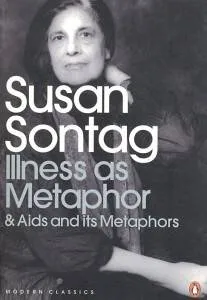
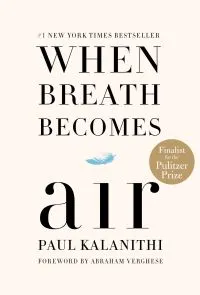 When Breath Becomes Air
When Breath Becomes Air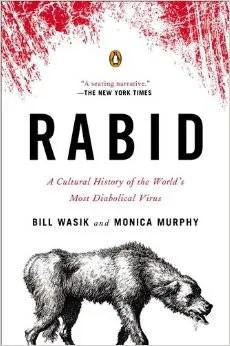
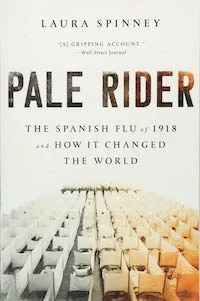 Pale Rider
Pale Rider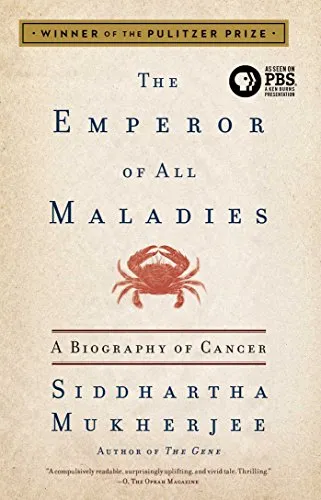
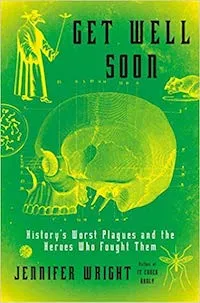 Get Well Soon
Get Well Soon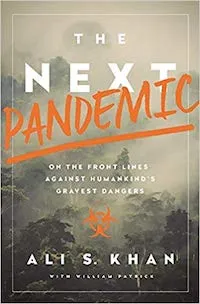 The Next Pandemic
The Next Pandemic







